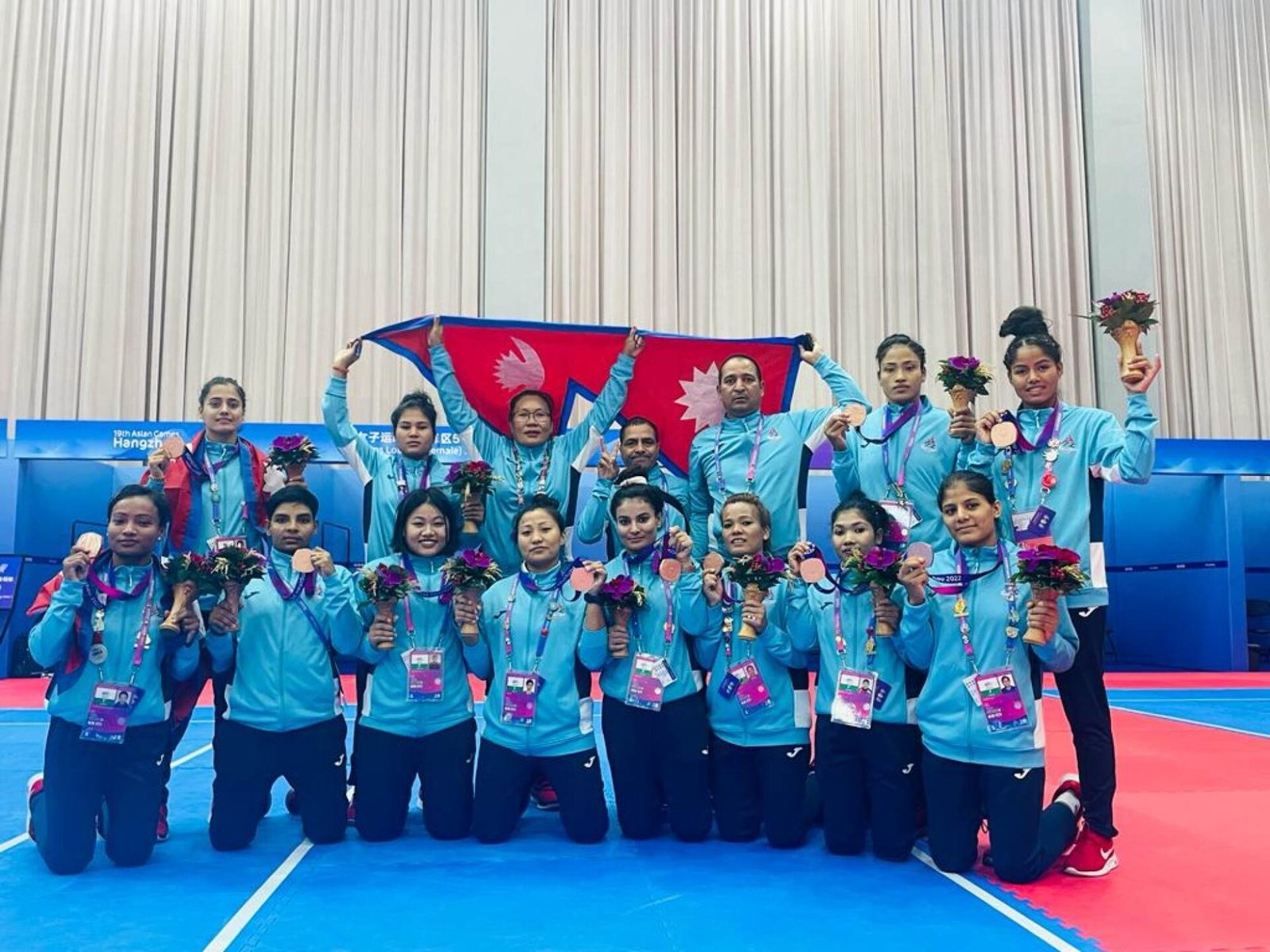Growing up in Jhapa district of eastern Nepal, Anuja Kulung Rai faced myriad challenges as she ardently pursued her passion for sports. Oftentimes skipping classes and even secretly traveling to nearby cities, she trained relentlessly for kabaddi. Her dedication bore fruit when, at 24, she became a pivotal part of Nepal’s women’s kabaddi team that clinched a bronze medal at the Asian Games in Hangzhou, China. This wasn’t just any win; it marked the first time Nepal’s women’s team participated, making it an emblematic achievement.
Now back in Nepal’s capital, Kathmandu, Rai reflects, “I’m recognized because of kabaddi today. My parents are relatively happier now.” Her story mirrors the experiences of many Nepali women who, despite possessing talent, face societal constraints and lack of infrastructural support.
Kabaddi, an ancient sport originating from India, has been part of the Asian Games since 1990. The game is played with two teams of seven members each, attempting to tag and tackle opponents on a court. Although popular at the school level in Nepal, the sport grapples with issues such as lack of dedicated training facilities. The women’s team, for instance, had to make do with practicing in a table tennis hall for the Hangzhou Games.
Parbati Rai, the chief coach of the women’s team, highlights these challenges, stating that kabaddi has been “intentionally overlooked.” She emphasizes that women, given the right opportunities and support, can shine just as brightly, if not more, as their male counterparts.
The journey hasn’t been easy for Rai, who began playing at a time when women in sports were rare in Nepal. Advised by her coaches to switch to kabaddi from shot put, Rai’s career stands testimony to the determination of women in the sports arena. Following in her footsteps is the current women’s kabaddi captain, Menuka Kumari Rajbanshi. Supported by her family, Rajbanshi joined sports with aspirations of joining the police or army, like many athletes in Nepal.
While victories in international competitions do bring accolades and monetary rewards, many argue it’s insufficient. Gold-medallist athlete Santoshi Shrestha opines that financial support shouldn’t be limited to those who win but extended to potential champions as well. She believes the state needs to make a more substantial investment in nurturing young talent.
Anuja Kulung Rai remains optimistic, hoping international wins might act as catalysts for change. She believes that the accomplishments of the women’s kabaddi team and other athletes, such as karate player Arika Gurung, will motivate the next generation. “The next generation is going to look up to us. If we get the recognition and are rewarded appropriately, they’ll see there’s a future in sports,” she concludes.
READ MORE:
